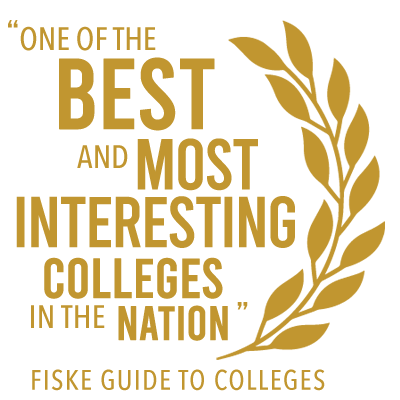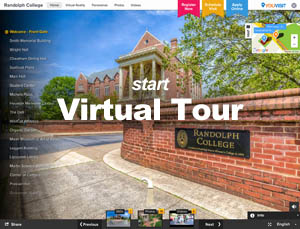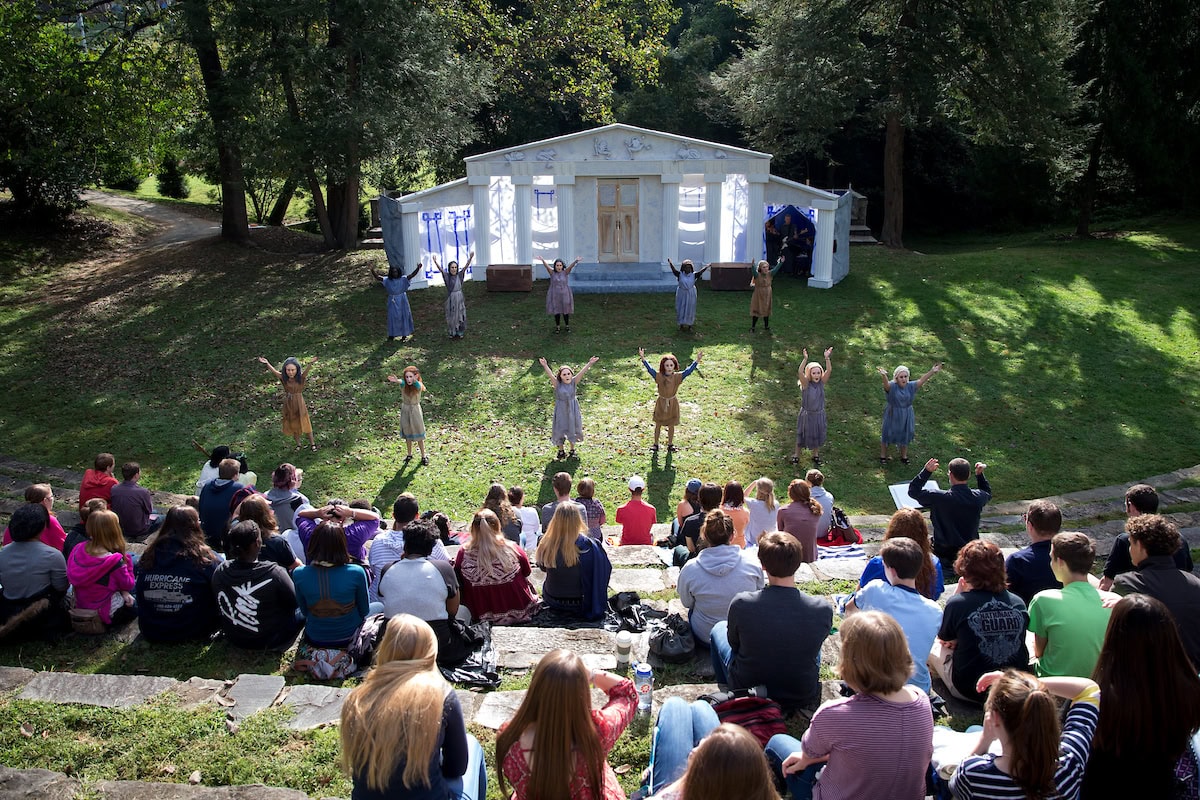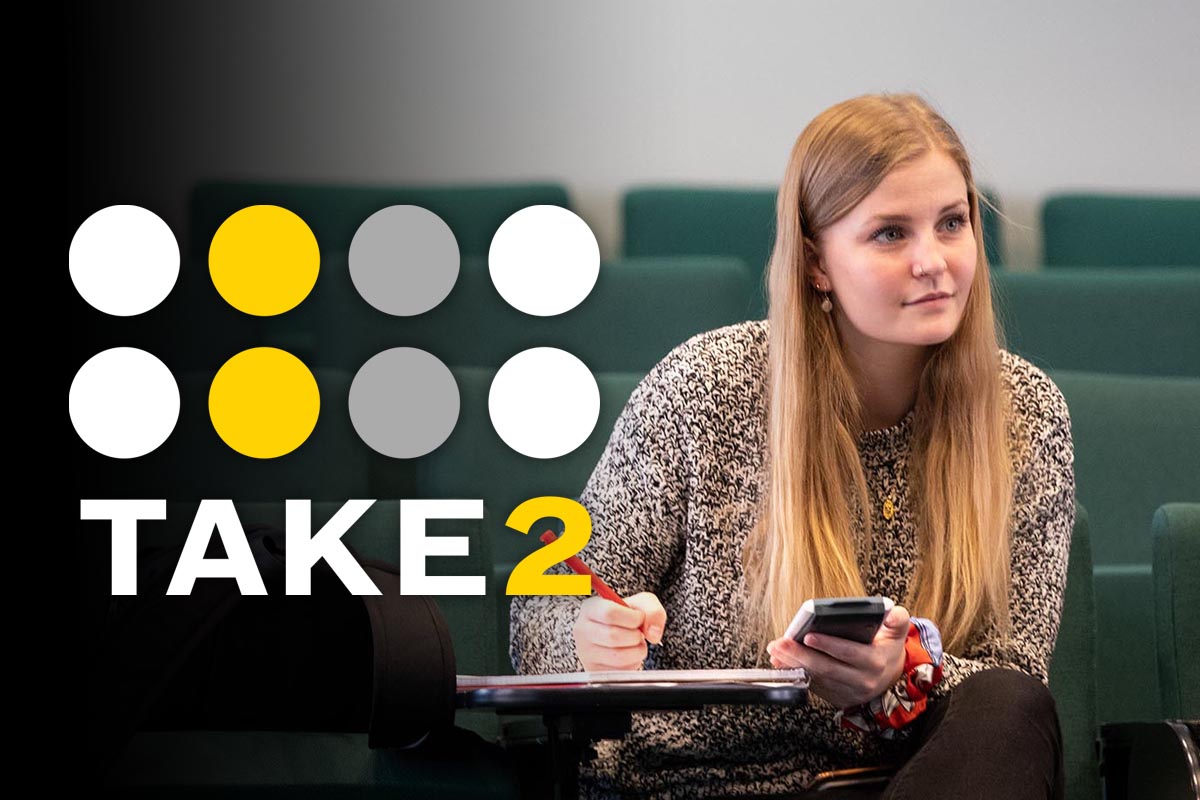Classics
Related Links
Course Offerings – Classics
Below is a list of available courses offered by the Classics Department. Consult the Registrar’s Office and the College Catalog for the official course list.
Course List
CLAS 1108 - Dramatic Mask Construction Workshop
This course provides practical training in the construction of Greek theatrical masks for use in the production of an ancient play. Students also participate in continuing research in construction methods. Credit hours: 0.5. Prerequisite: permission of instructor.
CLAS 1125 - Ancient Roots Of Modern Terminology
This course focuses on the history and structure of words of the majority of technical terms in medicine, the sciences, law, and beyond that use Greek and Latin roots as their building blocks. Students will learn elements of word formation (prefixes, suffixes, and bases) to develop word-analytical techniques and build vocabulary and recognition. By the end of the course, students choose the specialized units that most align with their educational and professional needs. Excellent preparation for standardized tests such as the GMAT, GRE, LSAT, and MCAT. Credit hours: 4.
CLAS 1126 - Terminology For Science And Engineering
This course focuses on the history and structure of words of the majority of technical terms in medicine, the sciences, law, and beyond that use Greek and Latin roots as their building blocks. Students will learn elements of word formation (prefixes, suffixes, and bases) to develop word-analytical techniques and build vocabulary and recognition. By the end of the course, students build a working vocabulary specific to various scientific disciplines and engineering by choosing the units most relevant to their disciplines. Emphasis on knowledge of terms regularly in use for research in the sciences, along with command of roots, prefixes, and suffixes that will allow students to interpret new terms. Credit hours: 4.
CLAS 1127 - Medical Terminology
This course focuses on the history and structure of words of the majority of technical terms in medicine, the sciences, law, and beyond that use Greek and Latin roots as their building blocks. Students will learn elements of word formation (prefixes, suffixes, and bases) to develop word-analytical techniques and build vocabulary and recognition. By the end of the course, students will build a working vocabulary specific to the medical professions by choosing the units most relevant to their disciplines. Emphasis on knowledge of terms for the anatomy and physiology of body systems, along with command of roots, prefixes, and suffixes that will allow students to interpret new terms. Does not count towards the Biology major. Identical with BIOL 1127. Credit hours: 4.
CLAS 1128 - Legal And Forensic Terminology
This course focuses on the history and structure of words of the majority of technical terms in medicine, the sciences, law, and beyond that use Greek and Latin roots as their building blocks. Students will learn elements of word formation (prefixes, suffixes, and bases) to develop word-analytical techniques and build vocabulary and recognition. By the end of the course, students will build a working vocabulary specific to professions in law and justice by choosing the units most relevant to their disciplines. Emphasis on knowledge of terms regularly in use in the legal system and related fields, along with command of roots, prefixes, and suffixes that will allow students to interpret new terms. Does not count towards the Political Science major. Identical with POL 1128. Credit hours: 4.
CLAS 1132 - Classical Mythology
An investigation into the nature and uses of myth in both ancient Greek and Roman cultures. Topics include the social significance of myth, the use of myth in art and literature, and the influence of Greco-Roman myth on Western civilization. Credit hours: 4.
CLAS 1173 - Clas One Time Only
Credit hours: 4. One time only.
CLAS 1175 - Sport And Spectacle
The course explores the ancient roots of modern athletics and mass entertainment through analyses of texts, works of art, and the archaeological settings of sport and spectacle that highlight their essential role in ancient societies. The Olympic games asserted Greek identity, civic virtue and competitive spirit; gladiatorial combat and chariot racing defined relationships between Romans and others, rulers and subjects. Credit hours: 4.
CLAS 1179 - Masterworks Of Greek And Roman Art
As an introduction to the artistic culture of ancient Greece and Rome, this team-taught course discusses select works of art and architecture in depth, from both art historical and archaeological perspectives. Its aim is to set works of art in their specific historical and cultural context while exploring the connection (in style, material, technique, aesthetic) between them and our world. Identical with ARTH 1179. Credit hours: 4.
CLAS 1180 - Mediterranean Empires
This is a survey course covering the history of the Mediterranean from the introduction of agriculture (c. 9000 BCE) to the rise of Islam (632 CE). The course considers the cultural, political, and social history of the region across this period, paying particular attention to the Greeks and Romans. Credit hours: 3. Identical with HIST 1180.
CLAS 1181 - Greek Drama Production Laboratory
This course is open to students who are full-time members of the cast or crew of the Greek Play but not enrolled in CLAS/THTR 2275. It provides practical experience with the production of an ancient play. Credit hours: .5 or 1. Prerequisite: permission of the instructor. Offered alternate years. Offered on Pass/Fail basis only. May be repeated for credit.
CLAS 1183 - Classical Rhetoric And Persuasive Power
We have inherited from ancient orators an understanding of the power of words to persuade and ideas about what makes a good speech appeal to an audience. Students will analyze speeches, delve into ancient rhetorical thinking, and apply its arts to speeches of their own. Students will read and write in English. Identical with MAC 1183. Credit hours: 4. (AE)
CLAS 1186 - Classics One Time Only
Classics One Time Only Course
CLAS 2273 - Clas One Time Only
Credit hours: 4. One time only.
CLAS 2273P - Clas One Time Only
Credit hours: .5 - 1. One time only. Permission of the instructor is required. Course may be repeated for credit.
CLAS 2273S - Clas One Time Only
Credit hours: 4. One time only.
CLAS 2274 - Clas One Time Only
Credit hours: 4. One time only.
CLAS 2274S - Clas One Time Only
Credit hours: 1. One time only.
CLAS 2275 - Greek Drama
The tragedies of Aeschylus, Sophocles, and Euripides and the comedies of Aristophanes studied in the context of ancient theatrical conventions, with an emphasis on theories and practices of performance. In-depth study of the play in production as the Greek Play, with required student participation (in any of a number of capacities) to put principles of the class into action. Identical with THTR 2275. Credit hours: 4. (AE, HE)
CLAS 2280 - Sci Fi, Fantasy, And Classical Traditions
This course explores how the genres of speculative fiction draw on and departs from ancient Greek and Roman literature, philosophy, myth, history, and art: in other words, how sci-fi and fantasy both transmit and transmute ancient materials and form deep wells of receptions of the ancient world. Students will focus on themes of perennial human significance (e.g., the uses of history, technology, fantastic voyages, metamorphosis, knowledge/wonder, and so on) in books, comics, films, television, and more. Identical with ENGL 2280. Credit hours: 4. Prerequisite: CLAS 1132 or permission of instructor.
CLAS 2286 - Clas One Time Only
Credit hours: 4. One time only.




